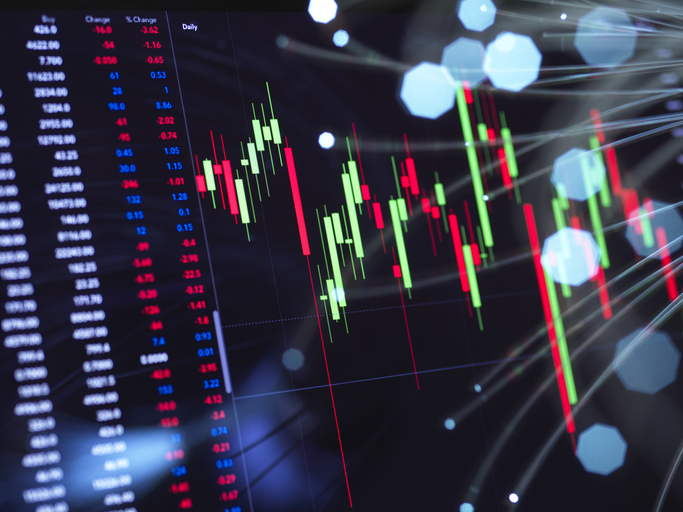8 Blue-Chip Stocks to Buy Now
Shares of big, high-quality companies have been seriously neglected. These stocks are cheap and attractive.

Profit and prosper with the best of Kiplinger's advice on investing, taxes, retirement, personal finance and much more. Delivered daily. Enter your email in the box and click Sign Me Up.
You are now subscribed
Your newsletter sign-up was successful
Want to add more newsletters?

Delivered daily
Kiplinger Today
Profit and prosper with the best of Kiplinger's advice on investing, taxes, retirement, personal finance and much more delivered daily. Smart money moves start here.

Sent five days a week
Kiplinger A Step Ahead
Get practical help to make better financial decisions in your everyday life, from spending to savings on top deals.

Delivered daily
Kiplinger Closing Bell
Get today's biggest financial and investing headlines delivered to your inbox every day the U.S. stock market is open.

Sent twice a week
Kiplinger Adviser Intel
Financial pros across the country share best practices and fresh tactics to preserve and grow your wealth.

Delivered weekly
Kiplinger Tax Tips
Trim your federal and state tax bills with practical tax-planning and tax-cutting strategies.

Sent twice a week
Kiplinger Retirement Tips
Your twice-a-week guide to planning and enjoying a financially secure and richly rewarding retirement

Sent bimonthly.
Kiplinger Adviser Angle
Insights for advisers, wealth managers and other financial professionals.

Sent twice a week
Kiplinger Investing Weekly
Your twice-a-week roundup of promising stocks, funds, companies and industries you should consider, ones you should avoid, and why.

Sent weekly for six weeks
Kiplinger Invest for Retirement
Your step-by-step six-part series on how to invest for retirement, from devising a successful strategy to exactly which investments to choose.
Shareholders of big, well-known companies -- often called blue chips -- have been singing the blues lately. These stocks, the darlings of Wall Street in the 1990s, have lagged the market since the start of the 21st century, even as large companies have become increasingly healthy, profitable and generous with their excess cash. And although big-capitalization stocks did outpace their small-company brethren during the 2011 downturn, they didn’t exactly shine. They simply lost a little less.
Seasoned professionals view the big-cap segment as a bargain hunter’s paradise, but most investors are shunning the stocks largely out of fear, says James Stack, president of Stack Financial Management and publisher of the InvesTech Market Analyst newsletter: “Investors are worried about everything -- soaring deficits, runaway government spending, a possible Greek default, the break-up of the European Union. Pick the fear du jour.”
In fact, such concerns influence investor attitudes toward all stocks. But the giants face unique problems. For starters, big companies are more exposed to the world’s woes than small companies, which are less likely to sell overseas or maintain operations abroad. When the domestic economy slumbers, the goliaths are too big to squeeze themselves into the safer niche areas in which small companies can hide out and flourish.
From just $107.88 $24.99 for Kiplinger Personal Finance
Become a smarter, better informed investor. Subscribe from just $107.88 $24.99, plus get up to 4 Special Issues

Sign up for Kiplinger’s Free Newsletters
Profit and prosper with the best of expert advice on investing, taxes, retirement, personal finance and more - straight to your e-mail.
Profit and prosper with the best of expert advice - straight to your e-mail.
It’s also harder for behemoths to generate the kind of growth that excites investors (Apple being a notable exception to the rule). After all, Chipotle Mexican Grill -- a Wall Street darling that went public in 2006 -- needs to produce only $18 million in additional profits to boost earnings by 10%. But for Chevron to do the same, it must lift profits by $1.9 billion -- roughly 100 times more. Because stock prices tend to reflect anticipated future growth, among other things, Chipotle sells at 46 times earnings, while Chevron’s price-earnings ratio is just 7. Meanwhile, Chevron is among a group of big companies that pay dividends so rich they make Treasury yields look anemic. Snap up shares of these giants and you can calmly collect those checks while you wait for better times.
Here are eight battered blue chips, clustered in three neglected areas, that have the potential to deliver pleasing results. All sell for less than 10 times estimated 2012 earnings per share (prices and other data are through October 7).
Defense-Stock Bargains
Investors in defense contractors, worried that Congress’s deficit-cutting “super committee” may slash military spending, are running scared. The average P/E for stocks in the sector is 25% to 30% below the overall market’s P/E, says Citigroup Global Markets analyst Jason Gursky. That’s similar to how defense stocks were valued in the early 1990s, when the Cold War was coming to an end and the government was slowing military expenditures.
But there are important differences today, says Gursky. At the end of the Cold War, the U.S. had just gone through a spending cycle that updated the nation’s arsenal. Thus, there was little need to keep buying warships, tanks and missiles. Today, “we have a bunch of aging fighter jets, aging tanks, aging ships,” Gursky says. “We have a hardware-refresh cycle that we need to go through over the next five years.”
Even if the defense budget experiences little growth, some top aerospace companies will continue to get lucrative work. Most likely to benefit is Lockheed Martin (symbol LMT), which is the lead contractor on the new F-35 fighter jet. Existing orders for this stealth fighter are likely to keep the Bethesda, Md., company humming for several years. In addition, the company has a well-positioned space satellite business that can pick up some of the slack if government contracting slows. Couple that with the company’s long-standing policy to share the wealth, and you’ve got the potential for a great long-term return. In September, Lockheed hiked its dividend by 33% and announced plans to buy back $2.5 billion of its own stock. The stock now yields a rich 5.4%.
Raytheon (RTN), a maker of missile-defense systems, is also likely to do well -- and it’s a screaming bargain, Gursky says. Although domestic demand for its systems is likely to decline, the Waltham, Mass., company generates about one-fourth of its business overseas, where demand remains brisk. Gursky thinks Raytheon shares will sell for $62 in a year -- up 50% from today’s price. Meanwhile, the company’s annual dividend of $1.72 per share provides a 4.2% yield.
Northrop Grumman (NOC) has a big piece of the F-35 contract, too. And the Los Angeles company is one of two key players in the unmanned drone business -- an area that’s getting increasing attention following the fatal strike on al-Qaeda recruiter Anwar al-Awlaki in Yemen (the other major participant, General Atomics, is privately held). The Value Line Investment Survey credits Northrop with having a “vast” product portfolio and gives the company its highest rating for financial strength. Analysts expect only modest earnings growth in 2012 (about 3%), but Gursky thinks the stock could nonetheless jump nearly 50% in the coming year, once Uncle Sam’s budget-cutting plans come into clearer focus.
Big Opportunities in Big Oil
Shares of the nation’s biggest energy companies have swooned lately thanks to falling oil and gas prices. But if you’re looking for a way to defend your portfolio from volatile markets, you may want to invest some cash in energy giants. Even if oil prices stay low for an extended period -- not a likely eventuality, in our view -- the major energy companies are strong enough to support generous dividend payments and buy back stock. And, notes Laurence Kandel, vice-president at Obermeyer Asset Management, a Colorado investment firm, in tough economic times it’s smart to focus on products that people need, rather than those that they want.
Eric Vermulm, a portfolio manager at Stack Financial Management, in Whitefish, Mont., prefers Houston-based ConocoPhillips (COP), partly because it plans to spin off its pipelines and refining operations in early 2012. That will underscore the value of the exploration company that remains and that Vermulm believes is underappreciated by Wall Street. After that spinoff, he figures, the stock of the remaining company will sport a head-turning dividend yield of 6%.
Bernie Williams, vice-president of discretionary money management at USAA, likes ExxonMobil (XOM), based in Irving, Tex., because it’s much less volatile than the market as a whole, making it a relatively safe way to invest in oil. Exxon, one of only four non-financial U.S. companies with a coveted triple-A debt rating, has boosted its dividend eight consecutive years, and the company is buying back prodigious quantities of its shares. Standard & Poor’s, which rates Exxon’s stock a strong buy, says the company has the deep pockets and technological know-how to keep increasing its energy reserves.
Pavel Molchanov, a Raymond James analyst in Houston, favors Chevron (CVX) because it has the least exposure to natural gas, which is in oversupply, and the most to oil. Headquartered in San Ramon, Cal., Chevron is strong in the Asia-Pacific region, which is growing rapidly. Molchanov expects Chevron to sell for $121 within a year, up nearly 30% from today’s prices.
Deals in Tech Wallflowers
Few high-quality, large-cap stocks are as widely held -- and as widely scorned --as Microsoft (MSFT). The software giant fell from grace when the tech bubble burst in 2000, and it’s never managed to regain even a modicum of its former glory.
Trend-conscious Wall Street has, in fact, turned its back on makers of personal-computer hardware and software, believing that smart phones and tablet computers, such as Apple’s iPad, will replace much of the PC business over time. But technology experts maintain that PC sales are unlikely to fall off a cliff and that Microsoft’s Windows is still the undisputed leader in PC operating systems. Moreover, the Redmond, Wash., company has a robust business-services division and a rapidly growing entertainment arm.
Because of its enormous size, it’s unlikely that Microsoft will deliver the hyper-growth that marked its early years. Analysts, on average, expect earnings to grow 10% annualized over the next three to five years (in today’s tepid economy, that’s not bad at all). But analysts have been underestimating Microsoft for years. In the fiscal year that ended last June, for example, the firm earned $23.2 billion -- a 23% increase from the previous year. Moreover, Vermulm thinks it’s far too soon to write off Microsoft as a key player in smart phones and tablets. “People forget that Microsoft has never been the first to open a market space,” he says. “It tends to come in later and replace the first movers.”
Intel (INTC), one of the leading lights of Silicon Valley, may be tarred by its long-standing association with Microsoft, being part of the “Win-tel” axis that powers most PCs. But analysts project that Intel will generate solid earnings growth of 11% annually, on average, over the next three to five years. And the Santa Clara, Cal., company has been devoting its ample research budget to designing smaller, smarter chips that can work well with the more petite smart phones and tablets that are expected to take the world by storm, says Crowell Weedon analyst James Ragan. He thinks Intel will sell for $28 in a year -- almost 30% more than its current price. Like Microsoft, Intel is loaded with cash. It has $11.5 billion of the green stuff on its balance sheet; Microsoft has $52.8 billion.
Profit and prosper with the best of Kiplinger's advice on investing, taxes, retirement, personal finance and much more. Delivered daily. Enter your email in the box and click Sign Me Up.

-
 Dow Adds 1,206 Points to Top 50,000: Stock Market Today
Dow Adds 1,206 Points to Top 50,000: Stock Market TodayThe S&P 500 and Nasdaq also had strong finishes to a volatile week, with beaten-down tech stocks outperforming.
-
 Ask the Tax Editor: Federal Income Tax Deductions
Ask the Tax Editor: Federal Income Tax DeductionsAsk the Editor In this week's Ask the Editor Q&A, Joy Taylor answers questions on federal income tax deductions
-
 States With No-Fault Car Insurance Laws (and How No-Fault Car Insurance Works)
States With No-Fault Car Insurance Laws (and How No-Fault Car Insurance Works)A breakdown of the confusing rules around no-fault car insurance in every state where it exists.
-
 If You'd Put $1,000 Into AMD Stock 20 Years Ago, Here's What You'd Have Today
If You'd Put $1,000 Into AMD Stock 20 Years Ago, Here's What You'd Have TodayAdvanced Micro Devices stock is soaring thanks to AI, but as a buy-and-hold bet, it's been a market laggard.
-
 Dow Rises 313 Points to Begin a Big Week: Stock Market Today
Dow Rises 313 Points to Begin a Big Week: Stock Market TodayThe S&P 500 is within 50 points of crossing 7,000 for the first time, and Papa Dow is lurking just below its own new all-time high.
-
 If You'd Put $1,000 Into UPS Stock 20 Years Ago, Here's What You'd Have Today
If You'd Put $1,000 Into UPS Stock 20 Years Ago, Here's What You'd Have TodayUnited Parcel Service stock has been a massive long-term laggard.
-
 Dow, S&P 500 Rise to New Closing Highs: Stock Market Today
Dow, S&P 500 Rise to New Closing Highs: Stock Market TodayWill President Donald Trump match his Monroe Doctrine gambit with a new Marshall Plan for Venezuela?
-
 'Donroe Doctrine' Pumps Dow 594 Points: Stock Market Today
'Donroe Doctrine' Pumps Dow 594 Points: Stock Market TodayThe S&P 500 rallied but failed to turn the "Santa Claus Rally" indicator positive for 2026.
-
 If You'd Put $1,000 Into Lowe's Stock 20 Years Ago, Here's What You'd Have Today
If You'd Put $1,000 Into Lowe's Stock 20 Years Ago, Here's What You'd Have TodayLowe's stock has delivered disappointing returns recently, but it's been a great holding for truly patient investors.
-
 If You'd Put $1,000 Into 3M Stock 20 Years Ago, Here's What You'd Have Today
If You'd Put $1,000 Into 3M Stock 20 Years Ago, Here's What You'd Have TodayMMM stock has been a pit of despair for truly long-term shareholders.
-
 Stocks Chop as the Unemployment Rate Jumps: Stock Market Today
Stocks Chop as the Unemployment Rate Jumps: Stock Market TodayNovember job growth was stronger than expected, but sharp losses in October and a rising unemployment rate are worrying market participants.